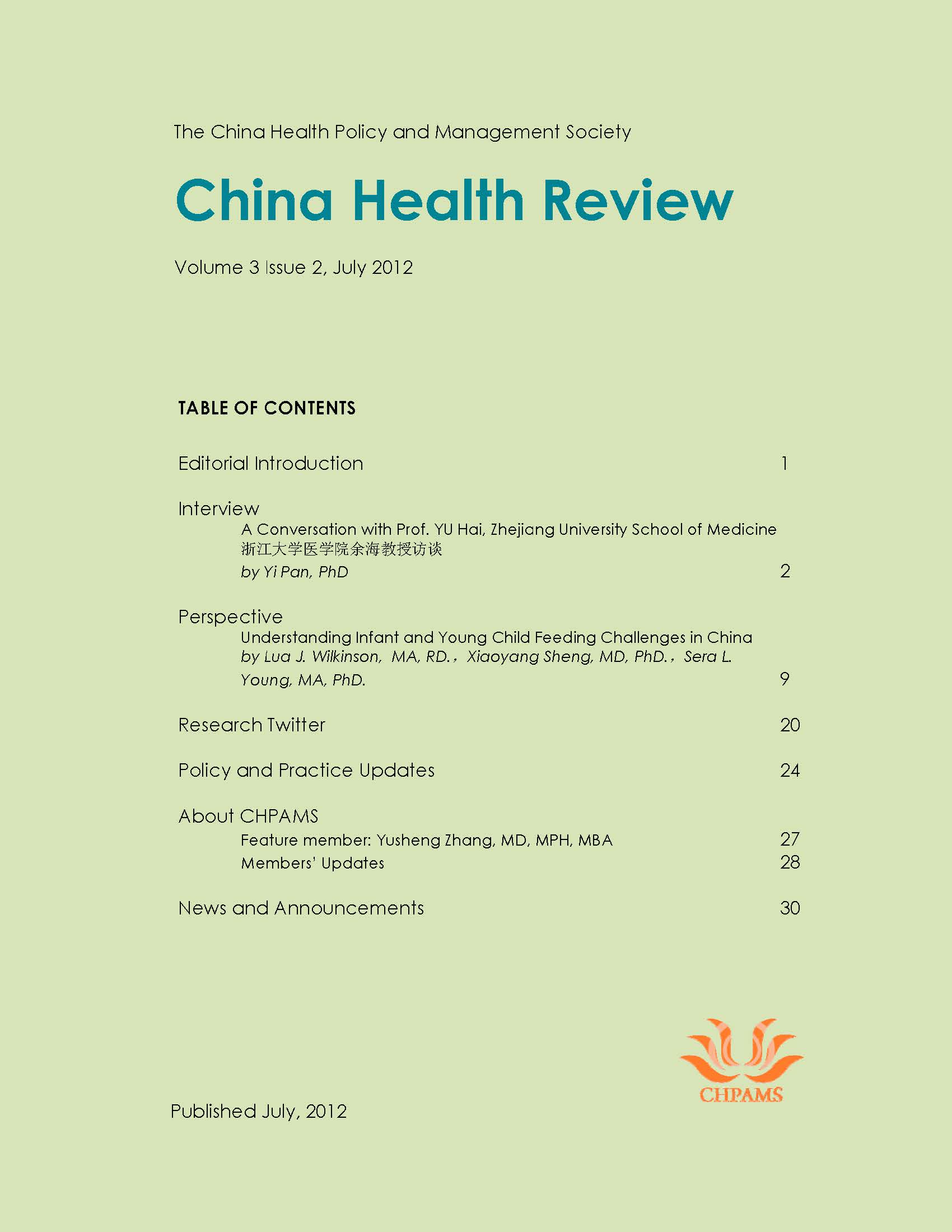UNDERSTANDING INFANT AND YOUNG CHILD FEEDING CHALLENGES IN CHINA
Parole chiave:
infant feeding, China, under-nutritionAbstract
This paper reviews infant feeding challenges China faces in the current economic and social climate. Infant and young childhood is a critical period of growth and development and losses due to under-nutrition are often irreversible. In urban areas, there has been a rapid increase in childhood obesity since the market reform policies of the early 1980’s, with interventions focusing on school-aged children or young adults. Under-nutrition continues to be widespread in many rural areas of China, and while improvements have taken place, most efforts are focused on school-aged children. In both under- and over-nutrition, little attention has been paid to the role infant feeding plays. Through observations and interviews with healthcare workers, mother’s groups and rural-urban migrant women in Shanghai and Yunnan, we attempt to deconstruct social and economic determinants of infant and young child feeding practices in order to illuminate specific barriers and possible solutions. Infant feeding decisions, particularly those regarding breastfeeding, are closely linked to cultural, economic and social values. Education, a crucial component of improving nutritional outcomes, does not alone change infant feeding behavior. Rural-to-urban migration, re-negotiation of family roles, and media as the main source of nutrition information for households each pose unique barriers to providing infant and young children with proper nutrition. Infant feeding and nutrition programs should take a multi-pronged approach that includes education, awareness, and policy.
摘要: 本文讨论在当前经济和社会环境下,中国所面临的婴儿喂养问题。婴儿和幼儿期是生长发育的关键期,在此阶段由于营养不足而造成的不利影响常常是无法弥补的。在中国很多农村地区,营养不足仍然相当普遍,虽然相应的改进措施已经实施,但是大多数只关注于学龄期儿童。在城市中,自80年代市场改革开放以来,儿童肥胖迅速增长,而相应的干预措施也只关注于学龄期儿童及青少年。无论是营养不足还是营养过剩,都没有注意到婴儿喂养在其中所起的作用。教育,虽然是改善营养状况的关键因素,但是单靠教育难以改变婴儿喂养习惯。从农村到城市的移居,家庭成员角色的重新定位,以及家庭营养信息主要来自于媒体等,各自从不同方面对婴幼儿获得适宜营养发挥着独特的作用。因此,婴儿喂养和营养计划应该多管齐下,包括教育、宣传、政策制定等。

